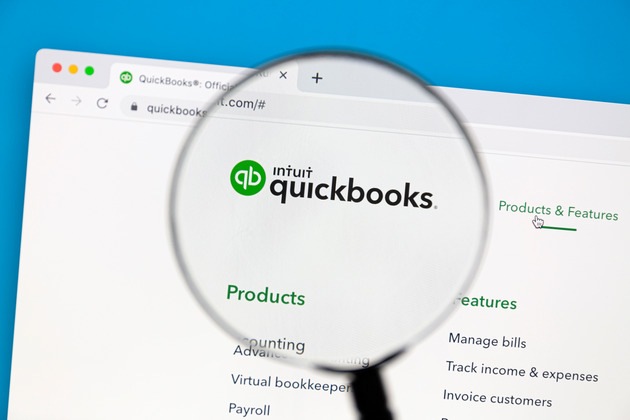8 QuickBooks Alternatives: Free and Paid
July 12, 2024

Almost 29 million small businesses use Quickbooks for accounting. But that doesn’t mean it’s the perfect fit for every business.
If you’re in the market for a new accounting software, QuickBooks isn’t the only option. There are many companies out there offering affordable options. Keep reading to explore some of the best QuickBooks alternatives to help you find the right solution for your business.
Pros and Cons of QuickBooks
QuickBooks is one of the most well-known accounting software options available. It offers a set of features and scalable plans that meet the needs of a wide range of businesses. While QuickBooks has many strengths, its drawbacks might not be right for everyone. Here’s a closer look at the pros and cons of using QuickBooks.
Pros
- User-Friendly. QuickBooks has a user-friendly design that makes accounting easy, even for people new to the practice.
- Favored by Accountants. Because it’s popular and reliable, many accountants like using QuickBooks. This makes it easier for businesses and accountants to collaborate and share data.
- Wide-Range of Features. QuickBooks offers features like invoicing, expense tracking, payroll, inventory management, and tax preparation. It provides everything you need for accounting in one place.
- Different Price Plan Options. With various plans available, QuickBooks can grow with your business. Whether you’re a small startup or a larger enterprise, there’s a plan that meets your requirements.
Cons
- Challenging to Use. While the basic functions are easy to use, teams might require extra training or support to use advanced features.
- Limited Customer Support Options. QuickBooks’ customer support has been criticized for being limited, especially on lower-priced plans. This experience can be frustrating for new users who need more help.
- Expensive. Even at the lowest tier, QuickBooks Desktop and QuickBooks Online can be pricey compared to alternatives.
Alternatives Worth Considering Besides QuickBooks

Many affordable and free QuickBooks alternatives are available that cater to different needs and budgets. Below, we’ve compiled a list of 8 QuickBooks alternatives.
1. Invoice Simple
Price: $6.99–19.99 per month.
Who is it for: Freelancers, entrepreneurs, small business owners
Key features:
- Unlimited estimates
- Converts estimates into custom invoices
- Easily create and send invoices with a click of a button
- Online payments via credit card, debit card, PayPal, and Venmo (US only)
- Expense tracking with receipt scanning
- Real-time invoice read receipts
Pros: Invoice Simple’s plans are a great alternative to Quickbooks for small businesses. They’re user-friendly, have mobile app access, and offer flexible payment options.
Cons: Their lowest plan limits users to 3 invoices per month. Higher-tier plans are required for additional features.
RELATED ARTICLE — How To Calculate Cash Flow: Key Formulas and Practical Examples
2. Zoho Books
Price: Free plan; paid plans range from $15–240 per month (billed annually).
Who is it for: Freelancers, small businesses, and those already using Zoho products
Key features:
- Recurring invoices
- Expense tracking
- Payment processing
- Payroll is available as a paid add-on
- Time tracking as a free add-on for paid users
- Seamless integration with other Zoho products
Pros: The free plan includes up to 1,000 invoices per year. They have affordable plan options and customizable reports.
Cons: The free plan has limitations. Time tracking must be tied to projects, and its extensive user interface may be too complex for some small businesses.
3. Xero
Price: $15–78 per month.
Who is it for: Small or growing businesses; international businesses
Key features:
- Unlimited, customizable quotes and invoices, bill payments, and bank reconciliation
- Hubdoc integration for receipt and expense tracking
- Project tracking with time management on higher-tier plans
- Multi-currency invoicing and payments on the highest tier
Pros: Affordable plans and high-tier plans have many features. The software integrates with Gusto for payroll and supports 160+ currencies.
Cons: There are invoice limits and there’s no time tracking on lower-tier plans.
4. Freshbooks
Price: $19–60 per month.
Who is it for: Freelancers and solo-operated businesses
Key features:
- Unlimited, customizable quotes and invoices
- Bill payment and bank reconciliation
- Client management, with the Lite plan allowing up to five clients
- Estimates and payment reminders
- Payment processing
- Time and expense tracking
- Advanced features in higher-tier plans, including double-entry accounting
Pros: Free trial for 30 days, user-friendly interface, unlimited invoices.
The cons: Lower-tier plans have client limits. Additional user costs are $10 per user per month.
5. Sage
Price: $10–25 per month.
Who is it for: Small businesses and individuals seeking simple, affordable accounting solutions
Key features:
- Interactive reporting tools
- Automatic bank reconciliation
- Record receipts with AutoEntry (paid add-on after the first three months)
- Multi-currency support
- Personal federal and state income tax filings are included in their premium plan
Pros: Affordable plans, free one-month trial, user-friendly interface, automatic bank reconciliation, and multi-currency support.
Cons: It lacks advanced features and requires paid add-ons for features like time tracking.
6. Bench
Price: $249–399 per month.
Who is it for: Business owners who need help with accounting tasks, including tax filing; small- to medium-sized businesses looking for a reliable way to manage their finances
Key features:
- A dedicated bookkeeping team will manage and organize all of your business transactions
- Organized monthly financial statements
- Comprehensive tax filing services
- Real-time overview of your business’s cash flow and expenses
Pros: Expert bookkeeping, tax filing services, user-friendly interface with real-time insights.
Cons: There are limited DIY options as it’s designed for those who prefer to outsource their bookkeeping.
RELATED ARTICLE — What Is Bookkeeping? Definition, Types, and Importance of Bookkeeping
7. Synder
Price: $48–220 per month; offers a 15-day free trial.
Who is it for: Ecommerce and SaaS businesses
Key features:
- Invoicing
- Tax tracking
- Inventory tracking
- Customizable reports
- Works with QuickBooks Online, QuickBooks Desktop, Xero, and Sage Intacct
Pros: It handles international transactions and consolidates cash flow from many channels. Historical data import isn’t capped, and it provides 24/7 support.
Cons: It’s only available online, and no built-in payroll functionality exists.
RELATED ARTICLE — Bookkeeping Versus Accounting: Differences Explained
8. Square Invoices
Price: $30 per month. Free plan available.
Who is it for: Freelancers and small businesses, including those with small teams needing time card tracking
Key features:
- Create and send invoices for milestone payments or in full
- Custom invoices and templates are available on the paid plan
- Unlimited invoices, customers, and users
- Free team management add-on for time tracking
Pros: Free and low-priced plans, low ACH payment cost, flat processing fees, accepts payments online or in person, unlimited invoices, and free time-tracking option.
Cons: Customization, milestone payments, and saving invoice templates are available only on the paid plan.
RELATED ARTICLE — ACH Versus Wire Transfers: Which Payment Method Is Right for Your Business?
Deciding When to Switch from QuickBooks

As your business grows and changes, your accounting software might not keep up. This could be because of cost, complexity, or missing features. Here are some signs that it’s time to switch to another solution:
- You need features that aren’t available, like advanced payroll tools that are better than QuickBooks online.
- The software is too complex, and you need simpler, more user-friendly options.
- You need a cheaper alternative to Quickbooks.
- You require more customer support than what is currently provided.
7 Tips for Choosing an Accounting Software
Selecting the right accounting software for your business could feel like searching for a needle in a haystack. There are so many options available. To find the best fit for your business, keep these tips in mind:
- Think About Your Budget. Make sure the software fits within your budget and provides the features you need.
- Consider Ease of Use. Choose an accounting solution that’s easy to use and has good customer support.
- Check Essential Features. Make a checklist of your needed features, such as invoicing, expense tracking, payroll, and bank reconciliation. Use that list to ensure your chosen software offers what you need.
- Look for Integrations. Ensure the software can connect with other tools you use, like CRM systems, email marketing apps, and e-commerce platforms.
- Evaluate Reporting Tools. Look for software with good reporting features to help you see how your business is doing financially.
- Decide on Accounting Methods. Check if the software supports both cash and accrual accounting methods, and choose the one that fits your business.
- Plan for Growth. Choose accounting software that can grow with your business. Find one that offers advanced features and higher-tier plans as your needs evolve.
RELATED ARTICLE — Accrual Basis Accounting: Definition and How It Works
Create Estimates and Invoices Instantly
For freelancers and small business owners, your to-do list is long. That means it’s crucial that you can get your invoicing done in minutes, not hours. Let Invoice Simple help.
You can create estimates and invoices on the road or at home and turn estimates into invoices with one click with Invoice Simple.












